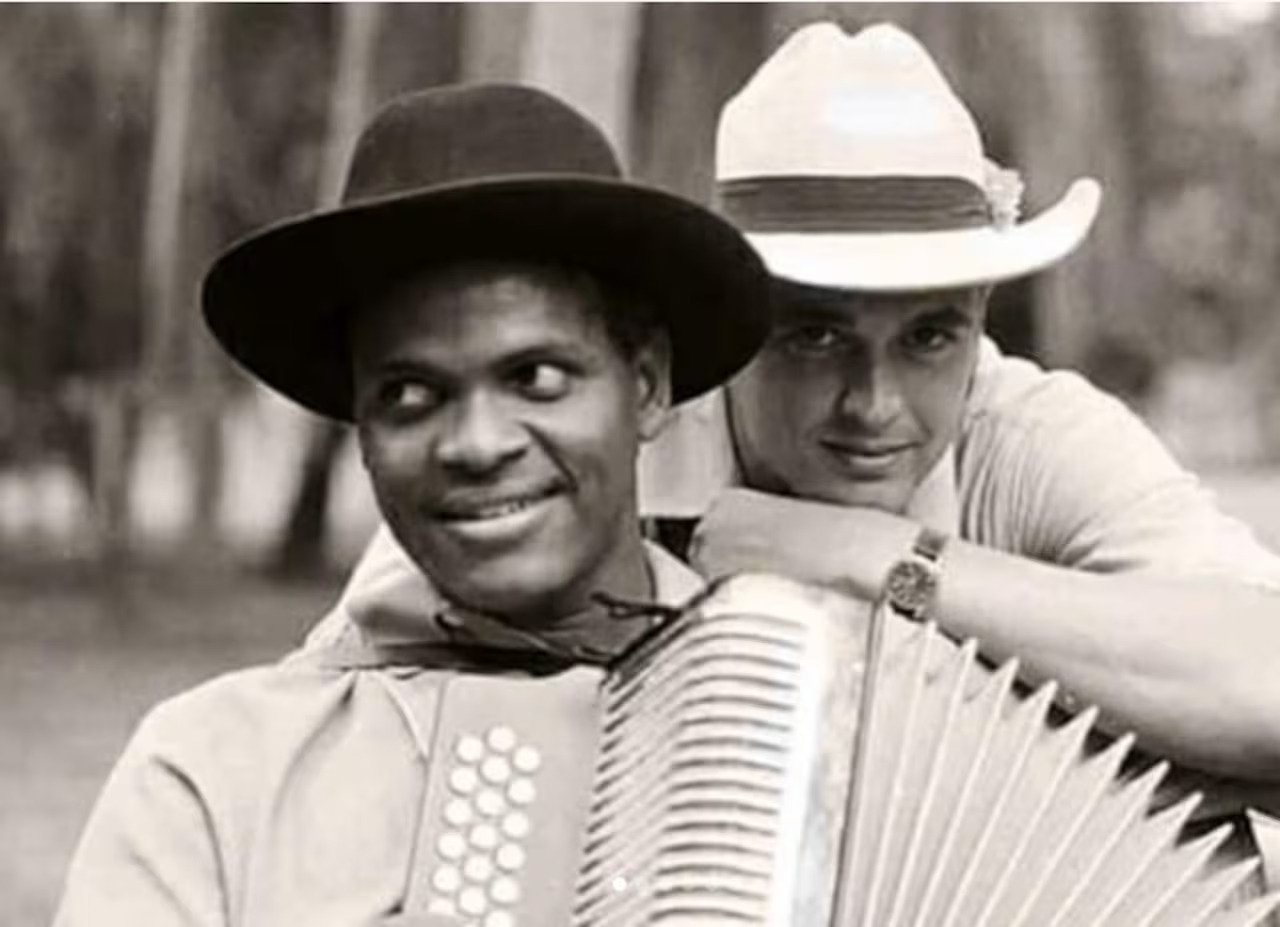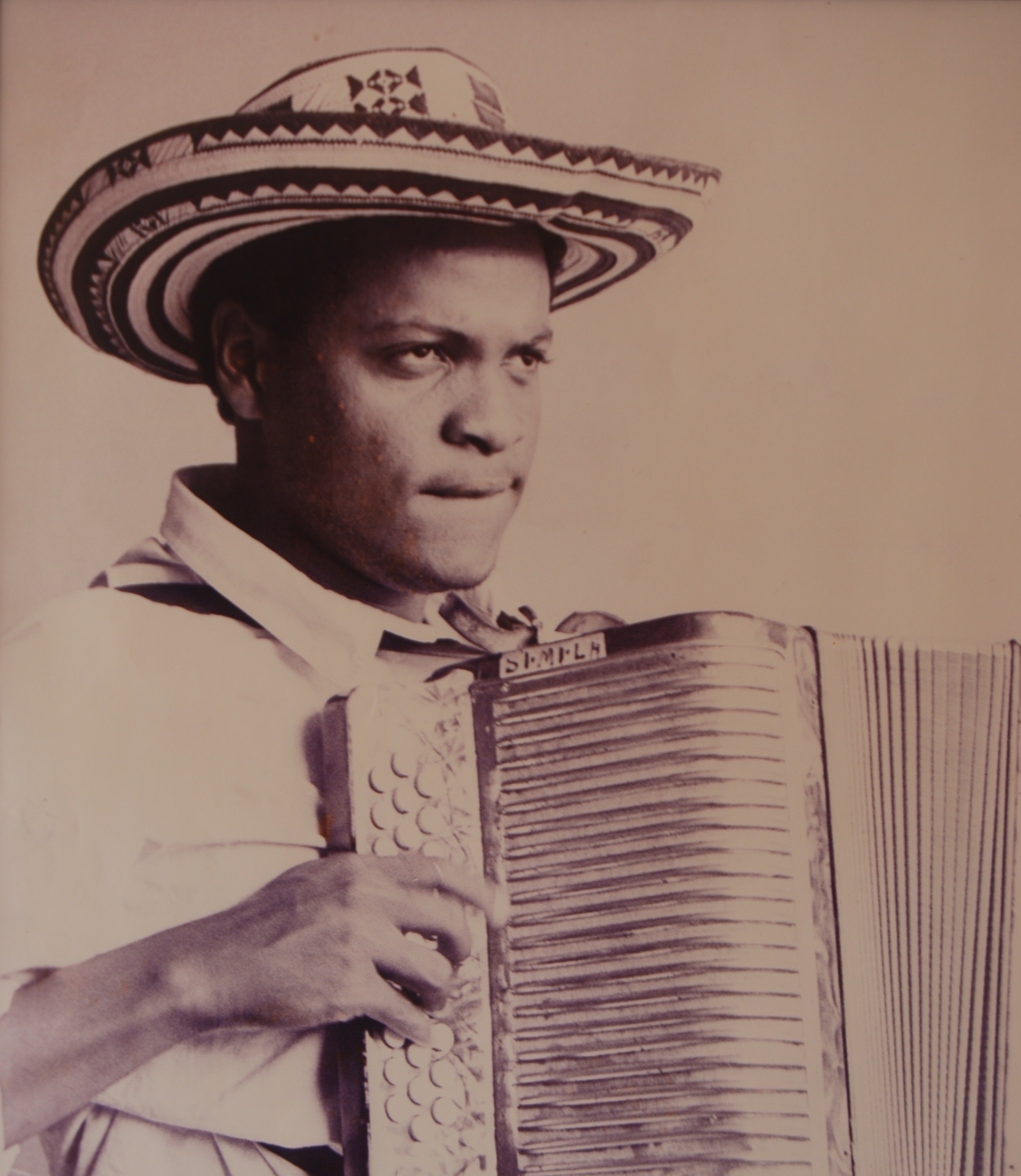Omar Geles, was born on February 15, 1967 in Valledupar, into a poor household; his father lived by selling vegetables from a wheelbarrow and his mother by washing other people's clothes. With few toys, Omar entertained himself in the company of his brother, a dog, a cat and the vallenatos that played on the neighbouring radio stations.
His father, Roberto Geles, would return home from work humming vallenatos and one day he brought an accordion and a drum. Omar was given the drum and his brother the accordion. It was the accordion that caught Omar's attention and his passion for the instrument took hold of him. It became his consolation when his father left home, and Omar and his brother had to help in whatever way they could, hanging piles of laundry, running errands, and selling avocados from dawn to dusk on the street. “I knew from a very young age that I was not going to part with the accordion and music," Omar once said. "I wanted to compose songs, because they brightened my life, they were like my incentive and my refuge during the difficult days of my childhood.”
As word got around of the talented little musician, one day Omar's mother put on her best clothes and dressed her son in white and red shoes and accompanied him to a program on Radio Guatapurí. The host, announcer Mario Puerta, gave him a space in the radio station's auditorium to perform and was so moved by Omar’s unusual musical prowess and striking appearance that he came up with the nickname “the little devil” to praise the musician’s extraordinary abilities and style. When he arrived in the neighbourhood, he was greeted with taunts of “the little devil!” “I was happy that day, but the envy of the people saddened me," said Omar, who remembered the taunting to this day. "The hugs and encouragement from my mother and brother comforted me, and the accordion healed me and sealed the wound.”

Shortly after, Omar met Miguel Morales. Both had led difficult lives and had a passion for music. They hit it off right away and started playing. The name of the group was already in Omar’s mind: Los Diablitos del vallenato.
His first works were successful, and he continued to shape the softest and most romantic vallenato of El Binomio de Oro. In 1989, Omar won the King of Professional Accordion at the Vallenato Legend Festival. Como le paga a mi Dios marked the milestone of Geles' first musical phase, which coincided with his appearance in the television soap opera “Escalona,” playing an accordion player who would have an encounter with the Devil. (photo above)
Meanwhile with the arrival of singer Jesús Manuel Estrada, Los Diablitos reached the peak of their popularity. His composition Los caminos de la vida, a heartfelt reflection on his mother’s sacrifices and her life example for him, resonated with a whole nation. “I didn’t write it thinking it would be a hit, I just wanted her to like it," Geles said. But that song has become almost a national anthem, with hundreds of versions of it made in different musical styles.
From “Los Diablitos” Omar went on to form “La gente de Omar Geles” in 2004. 900 of the almost a thousand compositions he wrote have been recorded he has composed. In 2010, Geles began a solo career that resulted the album "Una Historia cantada" and
"Parrandeando con Omar Geles" was the first to be released, where Omar sings songs of his own inspiration, which he had been performed by other legends such as Jorge Celedón , Silvestre Dangond , Nelson Velásquez , Felipe Peláez , Diomedes Díaz , Iván Villazón . In 2011 He received a tribute from renowned vallenato singers and composers for his 25 years of artistic life on the program Día a día on Caracol Televisión.
There is no vallenato group in the last three decades that has not been blessed with a hit song by Omar Geles. The secret of his compositions is that people find it very easy to identify with his stories and sing them. Days before his death, he happily released what would be his last song in life: “Lo que viviendo mamá” (What Mom Lived).
Composer Omar Geles died in a clinic in Valledupar. Such was the importance and love that Geles felt for his mother that during an interview he gave to Vicsary 11 months before he died, the composer said that she was the driving force of his life.















